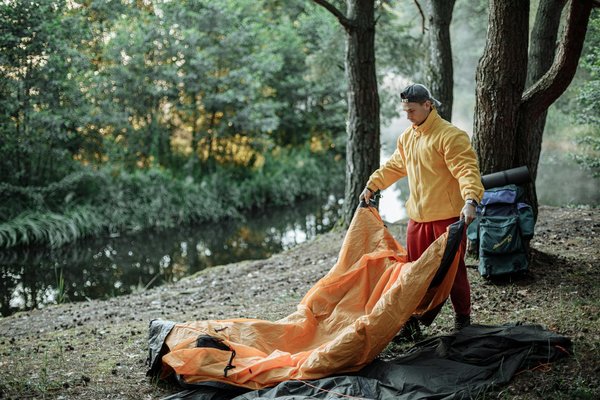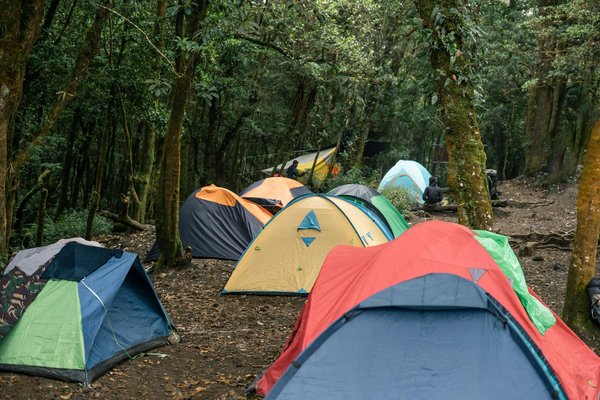Discover Your Next Unforgettable Escape
GetawayGaze is your trusted source for travel inspiration, destination guides, and insider tips. From camping under the stars to luxury cruises across the ocean, we bring you stories and insights to fuel your wanderlust and help you plan adventures that matter.
Explore Every Kind of Adventure
Browse our collection of travel guides, tips, and stories across all types of getaways
Camping
Camping, outdoors and nature
Cruise
Cruises and sea voyages
Good deal
Travel deals and promotions
News
Tourism and travel news
Rental
Holiday rentals and accommodation
Tourism
Destinations and tourist discoveries
Travel
Trips, itineraries and adventures
Vacation
Holidays, stays and relaxation
Latest articles
Our recent publications

Explore france: your complete travel guide for 2025
Planning a journey to France in 2025? This comprehensive guide offers everything you need to create a memorable travel e...

Unearth timeless treasures: explore the best historic uk market towns for unforgettable antique shopping experiences
If you're a lover of history, unique finds, and the charm of old England, then exploring the historic market towns of th...

Uncover scotland"s coastal gems: explore the best summer puffin photography locations!
Scotland, with its rugged coastlines, picturesque islands, and abundant wildlife, is a paradise for photographers and na...

Discover the best uk cities for unforgettable guided tours showcasing modern street art
In recent years, street art tours have gained significant popularity in the UK, transforming urban landscapes while prom...

Sustainable beach camping in the uk: embrace nature while safeguarding nesting birds
As the allure of the beach and the great outdoors beckons, many of us are drawn to the idea of beach camping in the UK. ...

The ultimate blueprint for eco-friendly camping in the uk"s wildlife sanctuaries
Eco-friendly camping is essential for reducing the environmental impact of outdoor activities and protecting fragile eco...

Unveil exciting uk campsites perfect for adventurous scuba diving experiences!
If you're eager to combine the thrill of scuba diving with the tranquility of a camping holiday, the UK has some fantast...

Discover premier uk literary cruises that journey through the enchanting heritage of british literature
UK literary cruises offer a unique blend of travel and storytelling, providing unforgettable literature-themed travel ex...

Embark on uk cruises unveiling the mysteries of ancient celtic rituals
UK cruises focusing on Celtic heritage have gained popularity, inviting travellers on voyages that intertwine rich cultu...

Uncover the best uk cruises that explore the rich legacy of british aviation history
If you're fascinated by the rich legacy of British aviation history and love the idea of combining this interest with a ...

Discover london's budget-friendly historic churches: must-see affordable gems for your journey
London's historic churches have long served as symbolic beacons of the city's rich past and architectural diversity. The...

Uncover budget-friendly escapades: ultimate guide to exploring the isle of skye without breaking the bank
When planning a budget-friendly trip to the Isle of Skye, securing budget accommodation is vital. A diverse array of opt...

Uncover budget-friendly family adventures: thrilling things to do near loch lomond
If you're searching for affordable outdoor adventures near Loch Lomond, you're in for a treat. The area offers a plethor...

Discover the true taste of british fish and chips: an engaging guide to immersive cooking classes for travelers
The history of fish and chips is rich and layered, deeply woven into the tapestry of British culinary history. Originati...

Discovering britain"s nautical heritage: must-visit uk locations for unforgettable guided historical tours
Britain's nautical heritage has played a pivotal role in shaping the nation's identity and global influence. From the ad...

Unveiling the best uk locations to experience the rich heritage of post-war british architecture
The post-World War II era in Britain was a time of significant transformation, particularly in the realm of architecture...

Ultimate guide to selecting the ideal holiday accommodation in the scottish borders for your wool festival getaway
The Scottish Borders offer a range of tempting accommodation types suitable for every traveller. Whether you're attendin...

Uncover hidden gem countryside retreats in the uk: your ultimate guide to perfect secluded holiday rentals
If you're looking to escape the hustle and bustle of city life and immerse yourself in the serene beauty of the countrys...

Your ultimate guide to discovering the ideal cornwall getaway with surfing lessons
If you're looking for a holiday that combines stunning natural beauty, vibrant culture, and the thrill of riding the wav...

Discover the hidden gems of borghese gardens in rome
Nestled in the heart of Rome, Villa Borghese Gardens offers visitors a peaceful escape from the bustling city streets. A...

The ultimate guide to securing colosseum tickets for your visit
Visiting the Colosseum is a breathtaking experience, but securing your entry can be challenging. Long lines and sold-out...

Top Birdwatching Hotspots to Explore in Norfolk Broads National Park
If you're an avid birdwatcher or simply someone who appreciates the beauty of nature, Norfolk Broads National Park is a ...

Explore the best eco-conscious travel options in the uk: your ultimate guide to sustainable adventures
The UK offers a variety of eco-friendly hotels and green lodging options for environmentally conscious travellers. These...

The complete birdwatching handbook for the norfolk broads: expert insights and essential tips
The Norfolk Broads are renowned for their rich wildlife diversity, providing a sanctuary for various bird species. Under...

Unlocking the secrets to an unforgettable experience at the national portrait gallery
Nestled in the vibrant Trafalgar Square, the National Portrait Gallery is a treasure trove of art, history, and culture,...

Delving into guided maritime archaeology tours in the uk: discovering underwater history and hidden treasures
Guided maritime archaeology tours offer a fascinating glimpse into our underwater past. Participants embark on an explor...

Explore the ultimate uk destinations for memorable guided tours of historic ironworks
Guided tours in the UK's historic ironworks are a popular attraction, drawing both history enthusiasts and those eager t...

Uncover oxford"s literary treasures: the definitive guide to uk guided tours of iconic literary landmarks
The literary history of Oxford stands as a testament to its significant role in shaping English literature. It has been ...

Start Exploring Today
Dive into hundreds of destination guides, travel tips, and inspiring stories. Whether you're planning your next vacation or dreaming about future adventures, GetawayGaze has the insights you need.
Rejoindre →Frequently Asked Questions
What kind of content does GetawayGaze publish?
We publish destination guides, travel tips, accommodation reviews, budget advice, and feature articles covering all types of travel experiences—from camping and road trips to cruises and international vacations. All content is researched and written by experienced travel writers.
How often is the content updated?
We publish new articles multiple times per week and regularly update existing guides to ensure information remains current. Our editorial calendar covers seasonal destinations, trending travel topics, and timeless travel wisdom.
Is GetawayGaze free to use?
Yes, all articles, guides, and resources on GetawayGaze are completely free to access. We're supported by affiliate partnerships with travel brands, which allows us to keep our content available to everyone without charging readers.
Can I suggest topics or destinations to cover?
Absolutely! We love hearing from our readers about destinations they'd like to learn more about or travel topics they find interesting. You can reach out through our contact page with suggestions, and we'll do our best to incorporate them into our editorial calendar.